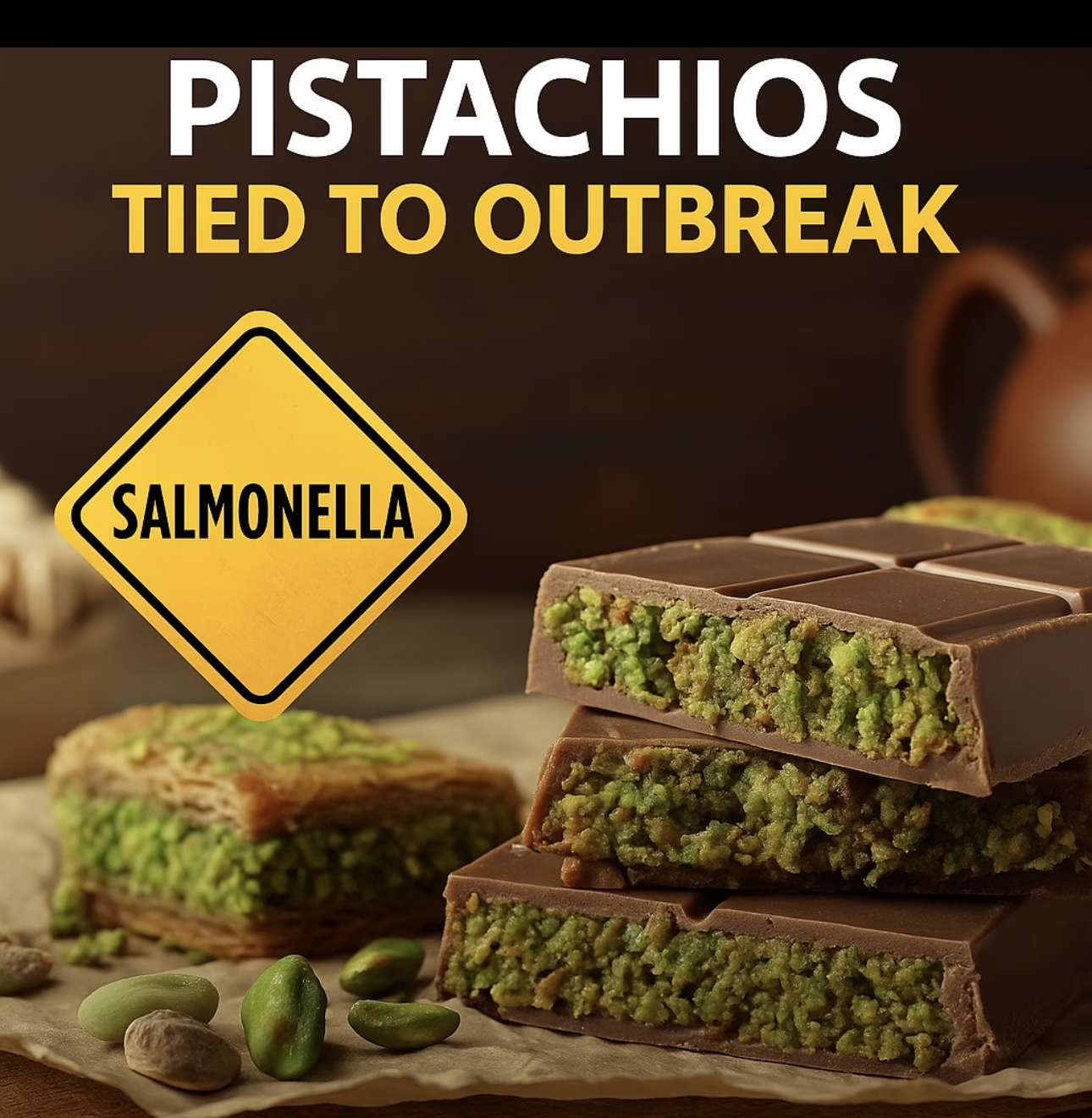Salmonella Outbreak in Canada Linked to Pistachio Products: What Ghanaians Should Know

Health officials in Canada have confirmed an ongoing Salmonella outbreak tied to pistachios and pistachio-containing foods — including imported “Dubai-style” chocolates and pastries. While no cases have been reported in Ghana to date, the recall affects global supply chains, and consumers should stay alert, especially when importing or buying exotic nut products.
What Happened
In 2025, Canadian health agencies detected a cluster of Salmonella illnesses traced back to contaminated pistachios. The Public Health Agency of Canada (PHAC) is collaborating with the Canadian Food Inspection Agency (CFIA) to recall affected products and track the source.
Confirmed Cases & Impact
- To date, 62 laboratory-confirmed cases have been reported across four provinces (Quebec, Ontario, British Columbia, Manitoba), with 10 hospitalizations.
- Patients range in age from 2 to 89 years.
- Because many infected individuals never seek medical care or get tested, the actual number of affected people is likely much higher.
Products Recalled & Under Investigation
The CFIA has issued recalls for pistachio kernels and related products, notably:
- Dubai brand Pistachio & Knafeh milk chocolates
- Baklava and other pastries made with pistachios (sold under “Andalos” and other labels)
Investigations found Salmonella strains in samples of Habibi-brand pistachios and in Dubai-style chocolate products containing pistachios.
Symptoms & Risks
Salmonellosis usually manifests 6 to 72 hours after ingestion, with symptoms that may include:
- Diarrhea
- Abdominal cramps
- Fever
- Nausea and vomiting
- Headache
Most healthy individuals recover in 4 to 7 days. But for infants, the elderly, pregnant people, or immunocompromised individuals, the disease can be more serious.
What Canadians (and Importers) Should Do
- Stop consuming or distributing any product on the official recall list. Return or dispose of them safely.
- Retailers and bakeries should check for use of suspect pistachio lots in their supplies and avoid distributing affected items.
- Anyone with gastrointestinal symptoms after consuming such products should seek medical care and mention possible exposure to Salmonella.
What This Means for Ghana & West Africa
- Imported pistachios, nut mixes, or Middle Eastern-style sweets (baklava, knafeh) may pose risk if sourced from contaminated batches.
- Ghana’s food safety authorities (such as the Food and Drugs Authority) and importers should increase vigilance: cross-check lot codes and supplier traceability.
- Consumers should avoid unverified or discounted bulk nut products, especially if shelf labels are missing or unclear.
- In case of suspected food poisoning, prompt medical reporting and sample retention (if possible) can help trace to the source.
Bottom Line
The salmonella outbreak in Canada tied to pistachio products is real, though claims like “80 Canadians tested positive for Dubai chocolate” are slightly overstated. The central danger comes from contaminated pistachios used in sweets and snacks. While no domestic cases in Ghana are confirmed, the globalized nature of food supply means that local authorities, importers, and consumers should stay alert.
www.nsemgh.com

